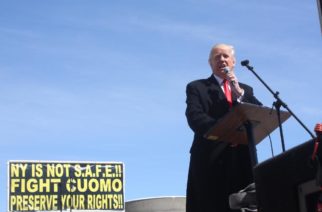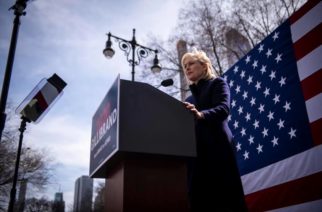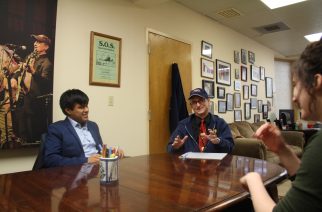
I get a lot of questions about pollsters. People hate the idea that pollsters can call elections. The pollsters not only tell you who is going to win, they tell you how much they will win by. But it turns out that every once in a while they get it all wrong. I know, in truth they get it right more often than not, but there are times when events catch up with them. I like that.
Let’s take young people. In the past, the youngest eligible voters couldn’t be bothered to show up at the polls. Maybe they were out partying the night before, drinking intoxicating beverages or smoking funny little cigarettes. They may be illustrative of a philosophy once advanced to me by a brilliant political philosopher colleague at Rutgers University. He told me that he didn’t vote, “Because I don’t know enough.” Others just don’t think they have any reason to vote. Save your letters, we know that some are just lazy.
The point is that pollsters are fully aware of this. They know the history of young voters. When they get them on their cell phones (another issue), they know whether they are lying about showing up based on what they have or have not done in the past. If students didn’t vote in the last several elections, pollsters are certainly justified in predicting that they wouldn’t show up this time. Bernie Sanders was right when he said over and over again that this election is all about “turnout.” If the kids fool the pollsters, the pollsters look like fools.
Young people may be overwhelmingly for Bernie, but if they don’t show up to vote, Bernie and all the political scientists know darn well he can’t win in New York state. The problem for the pollsters is that every once in a while the unexpected happens; young people do get really excited about a candidate and they roll out of bed no matter what kind of next day haze they are in. That’s the kind of thing that will drive a pollster back onto her therapist’s couch.
How many times have I heard from readers like you who tell me, “Hey, I have never been called by a pollster,” so who are they talking to? This is what we call sampling. Some pollsters can talk to a thousand people and tell you, they say, what millions of people will do in a given election. We all know that most of the time it turns out that they are right. But every once in a while, as in the case of some recent primary elections, they are off the mark by a lot.
You also have to consider the issue of reaching the younger demographic. Since most young people don’t even have landline telephones, how are the pollsters going to find out their phone numbers? Cell phone numbers are not readily available. All I can say is that pollsters have their ways. They get lists from the right sources. Sometime random dialing does the trick. Sometimes they get lucky and find a young person who still lives at home. They ask how old they are and then, based upon the answers, they start to multiply. That’s where the art part of polling comes in. Is a young person living at home different from a young person not living at home?
And what about people like me who promptly hang up when they get a call from someone identifying himself as a pollster? How do I know that the person on the other end of the line isn’t a trickster or one of those phony pollsters who is actually working for a particular candidate? In the few cases when I get such a call, I just hang up. After all, as the old saying goes, talking to them only encourages them.









